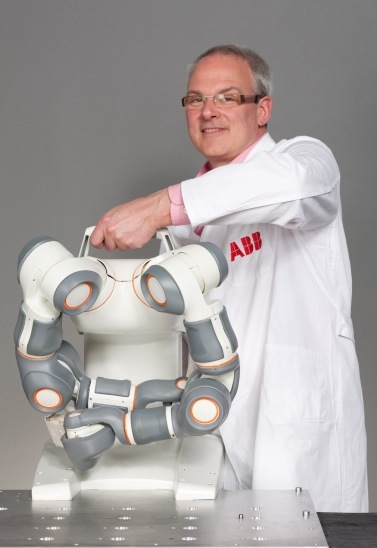 Swiss manufacturer ABB has revealed a prototype robot called Frida that's designed to be dexterous enough to replace a human being on a production line. It's a good thing that'll alleviate employee shortages, not subjugate the human race.
Swiss manufacturer ABB has revealed a prototype robot called Frida that's designed to be dexterous enough to replace a human being on a production line. It's a good thing that'll alleviate employee shortages, not subjugate the human race.Frida stands for Friendly Robot for Industrial Dual-arm Assembly, and the whole concept is pretty interesting. ABB, which is an industrial heavyweight, has reimagined the industrial robot, which is typically a huge, heavy piece of kit that's expensive, not particularly flexible and too dangerous to position near human workers. Instead of the typical single, powerful robot arm with multiple degrees of freedom, ABB considered how a typical human works in their workspace at an industrial task and tried to create a robot that could work like this. ABB also priortized making the robot cheaper, thus introducing robots to smaller companies that are robot-free.
Frida's arms have almost the same extension as a small-sized person, and while their dexterity is designed to match how human joints move, it can obviously surpass human motion limits at will--no person can spin their wrist 720 degrees, at least not outside the bounds of a horrible industrial accident.
It's also lightweight and designed to be clamped to a workbench and easily moved from its station, hence the built-in handle. To make it safe, its metal body is padded, and its motor drives have limited power so that if they do accidentally encounter a squishy human they won't cause too much damage. There's also software-based collision detection to prevent things getting to this point. It's smooth, with internally routed cables, so it's easy to keep clean. And there are few "pinch points" that a curious human digit could get trapped in.
http://www.fastcompany.com/1748528/abb-frida-robot-production-line-jobs

Δεν υπάρχουν σχόλια:
Δημοσίευση σχολίου